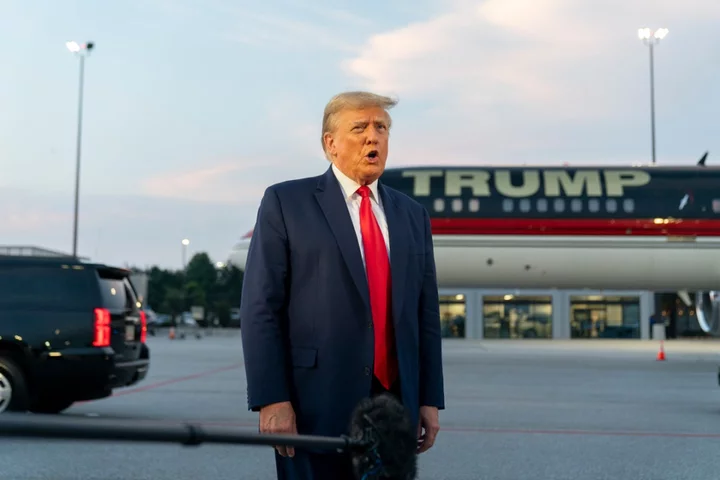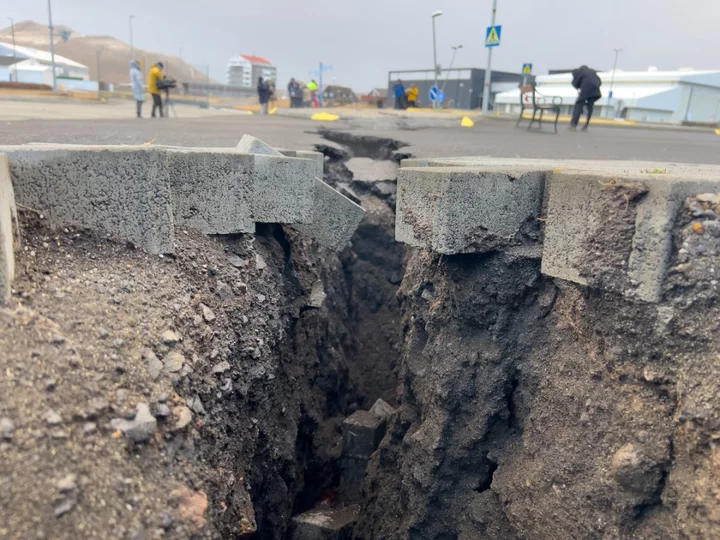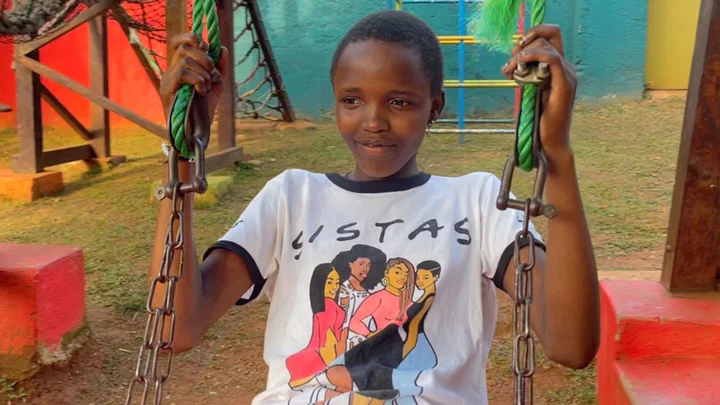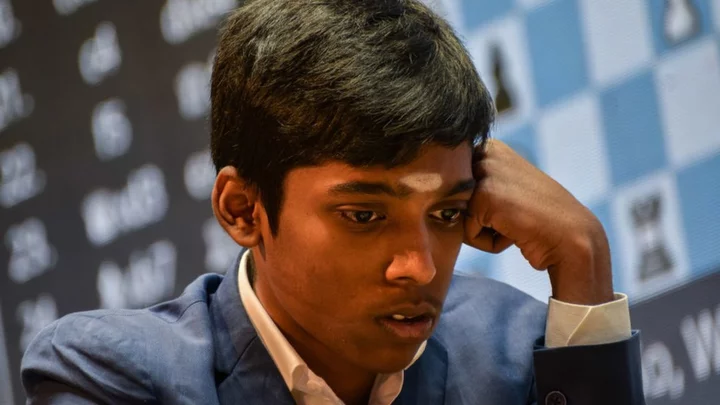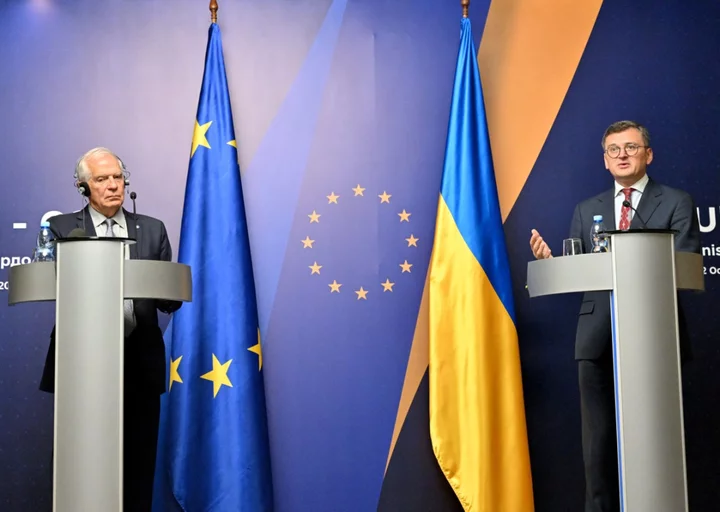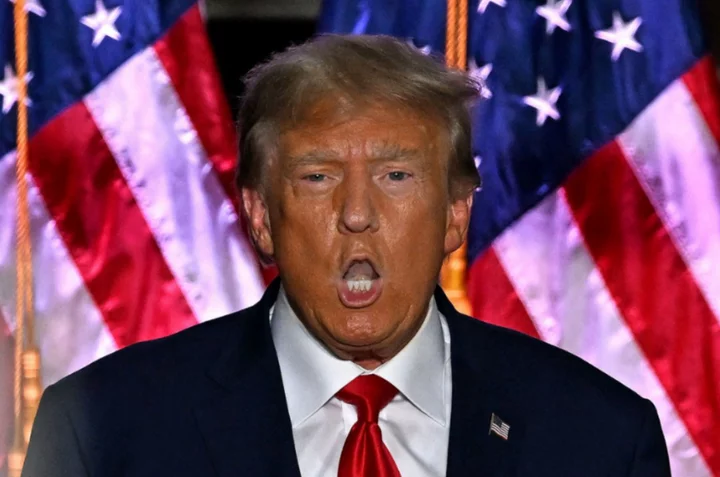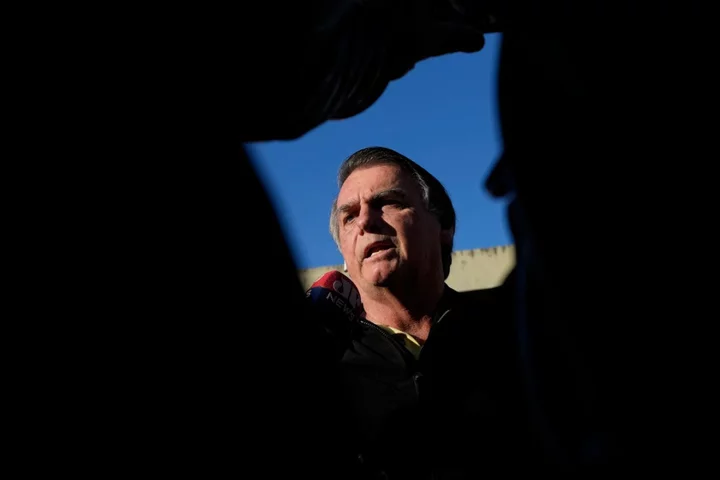Donald Trump has moved to sever Georgia case from the defendants seeking a speedy trial, arguing that it would violate his right to a fair process. “President Trump moves the Court to sever his case from those of his co-defendants who have demanded a speedy trial ... and who have a scheduled trial date of October 23, 2023,” lawyer Steven Sadow wrote in a filing on Thursday. The filing states that the timeline wouldn’t allow for the counsel to “have sufficient time to prepare President Trump’s case”. “Requiring less than two months preparation time to defend a 98-page indictment, charging 19 defendants, with 41 various charges including a RICO conspiracy charge with 161 Overt Acts, Solicitation of Violation of Oath by Public Officer, False Statements and Writings, Forgery, Influencing Witnesses, Computer Crimes, Conspiracy to Defraud the State, and other offenses would violate President Trump’s federal and state constitutional rights to a fair trial and due process of law,” Mr Sadow adds. Mr Trump’s motion comes after two of his codefendants in the election subversion case have asked the judge to sever their trials from the rest of the accused – including the former president. Lawyers Sidney Powell and Kenneth Chesebro have both requested speedy trials in the case. On Wednesday, they each formally requested that their cases be separated from the wider indictment, something that – if granted – would prevent Fulton County District Attorney Fani Willis from holding one trial for all 19 defendants at once. DA Willis previously revealed her plans to hold one trial for all the accused this October. In requesting speedy trials, Georgia state law now requires Ms Powell and Mr Chesebro’s trials to begin before early November. Judge Scott McAfee has already ordered Mr Chesebro’s trial to start on 23 October, while Ms Powell’s request is pending. Mr Trump is against such a hasty timeline, employing his longtime legal tactic of attempting to slow things down and drag out the process until after the 2024 election. But now, if the cases are severed, this could lead to delays in a wider trial for the remaining defendants, including Mr Trump. The requests from Ms Powell and Mr Chesebro mark the first attempts from the defendants to try to break up the massive case into smaller individual trials. Their respective motions were filed on Wednesday as the defendants and the prosecution work to set the framework for the process. Ms Powell and Mr Chesebro both deny all wrongdoing in the case. In her filing, lawyers for Ms Powell said that she “did not represent President Trump or the Trump campaign” in connection to the 2020 election and didn’t have an “engagement agreement” with Mr Trump or his campaign. “She appears on no pleadings for Trump or the Campaign,” the lawyers wrote. “She appeared in no courtrooms or hearings for Trump or the Campaign. She had no contact with most of her purported conspirators and rarely agreed with those she knew or spoke with.” Her insistence comes despite Mr Trump saying in the middle of November 2020, shortly after he lost the election, that he had “added” Ms Powell to his “great team” of attorneys working on legal challenges to the election results. When Ms Powell subsequently shared bizarre conspiracy theories that millions of votes had been flipped in an international plot to take down Mr Trump, his campaign removed her from the legal team and announced that she was “practising law on her own”. Now, her lawyers have also tried to distance herself from the other attorneys charged in the Georgia case, saying that she “went her own way” following the 2020 election and that “many of her purported coconspirators publicly shunned and disparaged Ms Powell beginning in November 2020”. The filing also argued that her legal career had shown her adherence to “integrity” and “the rule of law” while pushing the baseless claim amplified by many on the right that retired General Michael Flynn was the subject of “charges completely concocted against him by a politicized FBI”. Also on Wednesday, Mr Chesebro’s lawyers requested that the judge push Ms Willis to “disclose” the names of the 30 unindicted co-conspirators included in the indictment. Mr Chesebro was behind Mr Trump’s plan to put forward fake electors to win the electoral college and he argued that he needs the identities of the individuals in order to prepare his defence in the case. On Wednesday morning, Ms Willis filed a motion requesting that Judge McAfee advise the defendants in the case of the consequences of requesting a speedy trial, noting the demands on their procedural and evidentiary rights. “By filing their speedy trial demands in this case, the Defendants have personally, willfully and deliberately narrowed numerous options that would otherwise be available to them under Georgia law,” the filing states. Read More Trump moves to ditch Georgia co-defendants and dodge televised court appearance after not guilty plea - live Why Biden is taking the short stairs on Air Force One Proud Boy Joe Biggs sentenced to 17 years in prison for Jan 6 seditious conspiracy
Donald Trump has moved to sever Georgia case from the defendants seeking a speedy trial, arguing that it would violate his right to a fair process.
“President Trump moves the Court to sever his case from those of his co-defendants who have demanded a speedy trial ... and who have a scheduled trial date of October 23, 2023,” lawyer Steven Sadow wrote in a filing on Thursday.
The filing states that the timeline wouldn’t allow for the counsel to “have sufficient time to prepare President Trump’s case”.
“Requiring less than two months preparation time to defend a 98-page indictment, charging 19 defendants, with 41 various charges including a RICO conspiracy charge with 161 Overt Acts, Solicitation of Violation of Oath by Public Officer, False Statements and Writings, Forgery, Influencing Witnesses, Computer Crimes, Conspiracy to Defraud the State, and other offenses would violate President Trump’s federal and state constitutional rights to a fair trial and due process of law,” Mr Sadow adds.
Mr Trump’s motion comes after two of his codefendants in the election subversion case have asked the judge to sever their trials from the rest of the accused – including the former president.
Lawyers Sidney Powell and Kenneth Chesebro have both requested speedy trials in the case.
On Wednesday, they each formally requested that their cases be separated from the wider indictment, something that – if granted – would prevent Fulton County District Attorney Fani Willis from holding one trial for all 19 defendants at once.
DA Willis previously revealed her plans to hold one trial for all the accused this October.
In requesting speedy trials, Georgia state law now requires Ms Powell and Mr Chesebro’s trials to begin before early November. Judge Scott McAfee has already ordered Mr Chesebro’s trial to start on 23 October, while Ms Powell’s request is pending.
Mr Trump is against such a hasty timeline, employing his longtime legal tactic of attempting to slow things down and drag out the process until after the 2024 election.
But now, if the cases are severed, this could lead to delays in a wider trial for the remaining defendants, including Mr Trump.
The requests from Ms Powell and Mr Chesebro mark the first attempts from the defendants to try to break up the massive case into smaller individual trials. Their respective motions were filed on Wednesday as the defendants and the prosecution work to set the framework for the process.
Ms Powell and Mr Chesebro both deny all wrongdoing in the case.
In her filing, lawyers for Ms Powell said that she “did not represent President Trump or the Trump campaign” in connection to the 2020 election and didn’t have an “engagement agreement” with Mr Trump or his campaign.
“She appears on no pleadings for Trump or the Campaign,” the lawyers wrote. “She appeared in no courtrooms or hearings for Trump or the Campaign. She had no contact with most of her purported conspirators and rarely agreed with those she knew or spoke with.”
Her insistence comes despite Mr Trump saying in the middle of November 2020, shortly after he lost the election, that he had “added” Ms Powell to his “great team” of attorneys working on legal challenges to the election results.
When Ms Powell subsequently shared bizarre conspiracy theories that millions of votes had been flipped in an international plot to take down Mr Trump, his campaign removed her from the legal team and announced that she was “practising law on her own”.
Now, her lawyers have also tried to distance herself from the other attorneys charged in the Georgia case, saying that she “went her own way” following the 2020 election and that “many of her purported coconspirators publicly shunned and disparaged Ms Powell beginning in November 2020”.
The filing also argued that her legal career had shown her adherence to “integrity” and “the rule of law” while pushing the baseless claim amplified by many on the right that retired General Michael Flynn was the subject of “charges completely concocted against him by a politicized FBI”.
Also on Wednesday, Mr Chesebro’s lawyers requested that the judge push Ms Willis to “disclose” the names of the 30 unindicted co-conspirators included in the indictment. Mr Chesebro was behind Mr Trump’s plan to put forward fake electors to win the electoral college and he argued that he needs the identities of the individuals in order to prepare his defence in the case.
On Wednesday morning, Ms Willis filed a motion requesting that Judge McAfee advise the defendants in the case of the consequences of requesting a speedy trial, noting the demands on their procedural and evidentiary rights.
“By filing their speedy trial demands in this case, the Defendants have personally, willfully and deliberately narrowed numerous options that would otherwise be available to them under Georgia law,” the filing states.
Read More
Trump moves to ditch Georgia co-defendants and dodge televised court appearance after not guilty plea - live
Why Biden is taking the short stairs on Air Force One
Proud Boy Joe Biggs sentenced to 17 years in prison for Jan 6 seditious conspiracy

